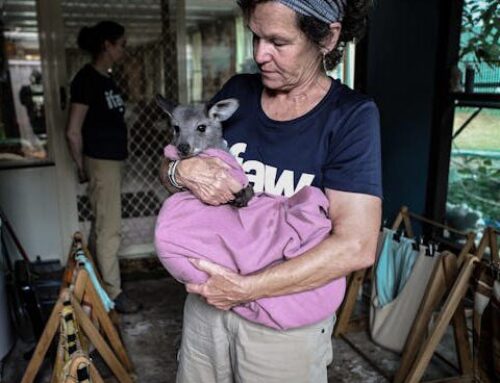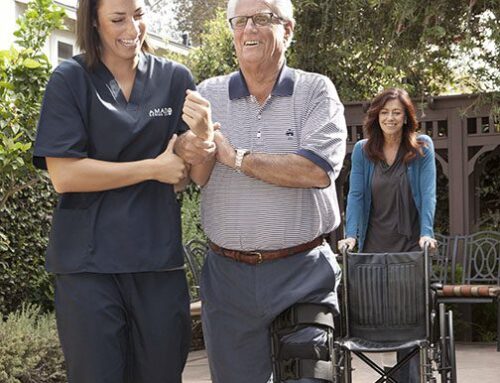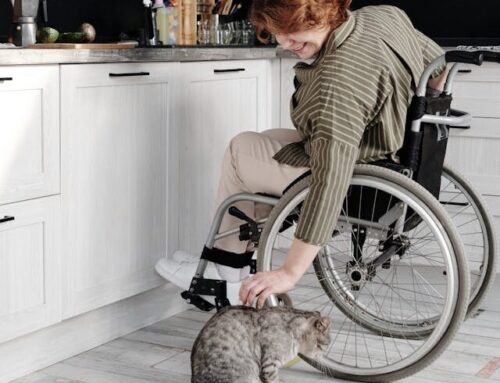By Alzheimer’s Association
Many people joke about forgetting friends’ names or where they put their keys, but there is a big difference between a slight lack of focus and the debilitating effects of Alzheimer’s disease.
What is Alzheimer’s Disease?
Alzheimer’s is a fatal brain disease that causes a gradual decline in memory, thinking, communication and reasoning skills. In its early stages, memory loss is mild, but with late-stage Alzheimer’s, individuals lose the ability to carry on a conversation and respond to their environment. Alzheimer’s is the sixth leading cause of death in the United States. Alzheimer’s is also the most common cause of dementia.
What is Dementia?
Dementia is the umbrella term for a person’s decline in memory and other cognitive abilities that is severe enough to interfere with daily life. Alzheimer’s is the most common form of dementia, causing up to 80 percent of all cases.
4 Most Common Types of Dementia
- Vascular Dementia: This form of dementia is caused by decreased blood flow to the brain due to stroke or other blood vessel diseases.
- Lewy Body Dementia: Also known as dementia with Lewy bodies, this type of dementia causes physical changes in the brain that can lead to a decline in mental abilities and motor skills.
- Frontotemporal Dementia: This type of dementia is caused by damage to the frontal and temporal lobes of the brain, resulting in changes in behavior and language difficulties.
- Mixed Dementia: Also known as mixed-type dementia, this form of dementia is caused by a combination of Alzheimer’s disease, vascular dementia, and other types of dementia.
Alzheimer’s is Not a Normal Part of Aging
Alzheimer’s is not a normal part of aging, even though increasing age is the greatest known risk factor and the majority of people with Alzheimer’s are 65 and older. A small percentage of people can display signs of the early onset of Alzheimer’s in their 40s and 50s. Early diagnosis of Alzheimer’s can allow a person to find the best help possible and plan for the future. How can you know when simple forgetting becomes a serious health issue?
The 10 Warning Signs of Alzheimer’s Disease
The Alzheimer’s Association cites ten critical early signs of Alzheimer’s which could indicate the onset of Alzheimer’s disease. If your loved one is showing signs of this debilitating disease, contact AMADA Senior Care for a free consultation and discussion on what type of care may be needed, both in the short-term and long-term future.
1. Memory loss that disrupts daily life
One of the most common signs of Alzheimer’s disease is memory loss and forgetting recently learned information. Others include forgetting important dates or events, asking for the same information over and over, and increasingly needing to rely on memory aides (e.g., reminder notes or electronic devices) or family members for things a person used to handle on their own.
What’s a typical age related change?
Sometimes forgetting names or appointments, but remembering them later.
2. Challenges in planning or solving problems
Some people may experience changes in their ability to develop and follow a plan or work with numbers. They may have trouble following a familiar recipe or keeping track of monthly bills. They may have difficulty concentrating and take much longer to do things than they did before.
What’s a typical age-related change?
Making occasional errors when balancing a checkbook.
3. Difficulty completing familiar tasks at home, at work or at leisure
People with Alzheimer’s often find it hard to complete daily tasks. Sometimes, people may have trouble driving to a familiar location, managing a budget at work or remembering the rules of a favorite game.
What’s a typical age-related change?
Occasionally needing help to use the settings on a microwave or to record a television show.
4. Confusion with time or place
People with Alzheimer’s can lose track of dates, seasons and the passage of time. They may have trouble understanding something if it is not happening immediately. Sometimes they may forget where they are or how they got there.
What’s a typical age-related change?
Getting confused about the day of the week but figuring it out later.
5. Trouble understanding visual images and spatial relationships
For some people, having vision problems is a sign of Alzheimer’s. They may have difficulty reading, judging distance and determining color or contrast, which may cause problems with driving.
What’s a typical age-related change?
Vision changes related to cataracts.
6. New problems with words in speaking or writing
People with Alzheimer’s may have trouble following or joining a conversation. They may stop in the middle of a conversation and have no idea how to continue or they may repeat themselves. They may struggle with vocabulary, have problems finding the right word or call things by the wrong name (e.g., calling a “watch” a “hand-clock”).
What’s a typical age-related change?
Sometimes having trouble finding the right word.
7. Misplacing things and losing the ability to retrace steps
A person with Alzheimer’s disease may put things in unusual places. They may lose things and be unable to go back over their steps to find them again. Sometimes, they may accuse others of stealing. This may occur more frequently over time.
What’s a typical age-related change?
Misplacing things from time to time and retracing steps to find them.
8. Decreased or poor judgment
People with Alzheimer’s may experience changes in judgment or decision-making. For example, they may use poor judgment when dealing with money, giving large amounts to telemarketers. They may pay less attention to grooming or keeping themselves clean.
What’s a typical age-related change?
Making a bad decision once in a while.
9. Withdrawal from work or social activities
A person with Alzheimer’s may start to remove themselves from hobbies, social activities, work projects or sports. They may have trouble keeping up with a favorite sports team or remembering how to complete a favorite hobby. They may also avoid being social because of the changes they have experienced.
What’s a typical age-related change?
Sometimes feeling weary of work, family and social obligations.
10. Changes in mood and personality
The mood and personalities of people with Alzheimer’s can change. They can become confused, suspicious, depressed, fearful or anxious. They may be easily upset at home, at work, with friends or in places where they are out of their comfort zone.
What’s a typical age-related change?
Developing very specific ways of doing things and becoming irritable when a routine is disrupted.
How Caregivers Can Help with Alzheimer’s Disease
Caring for older adults with Alzheimer’s can be challenging, but there are many ways caregivers can help. Caregivers should create a safe and comfortable environment for the person and provide emotional support. Being patient and understanding the person’s changing abilities and needs is essential. Caregivers should also develop an action plan that includes setting goals, making lifestyle changes, and creating an organized schedule.
Manage Alzheimer’s and Dementia with Amada
At Amada Senior Care, our senior clients, and their well-being are our top priority. Our professional caregivers are trained to be compassionate and patient while providing the highest quality care. We provide customized care plans designed to meet the physical, emotional, and social needs of every senior we serve. To learn more about our care services, contact us today.
Copyright © Alzheimer’s Association®. All rights reserved.



